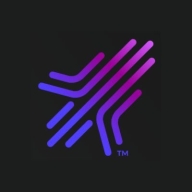

NetApp AltaVault and Rocket Servergraph are both prominent solutions for data management, competing in the same category. NetApp AltaVault seems to have the upper hand in ease of deployment, while Rocket Servergraph stands out in feature richness and user satisfaction.
Features: NetApp AltaVault is known for robust data deduplication, efficient cloud storage integration, and secure data transfer. Rocket Servergraph users value its comprehensive reporting, monitoring features, and scalability.
Room for Improvement: NetApp AltaVault could enhance integration flexibility with other systems, improve processing speed, and refine its user interface. Rocket Servergraph users indicate a need for better customization options, improved user documentation, and a less steep learning curve.
Ease of Deployment and Customer Service: NetApp AltaVault is praised for quick and efficient deployment, alongside responsive customer support. Rocket Servergraph requires more technical know-how for deployment and has mixed reviews on customer support.
Pricing and ROI: NetApp AltaVault is viewed as competitively priced with strong ROI due to efficient storage solutions and minimal ongoing costs. Rocket Servergraph tends to be higher in cost but is justified by its advanced features, translating to substantial long-term ROI.

NetApp AltaVault is a cloud-integrated storage solution created to increase recovery capabilities and lower cost and risks. It is better than traditional backup and recovery solutions because they are considerably slower, more expensive, risky, and can be too complex for the comprehension of many users. NetApp AltaVault solves issues related to backup, archival, and restoration. Compared to on-premises solutions, this software claims to be up to 90% less expensive while solving multiple issues related to data storage in the cloud. AltaVault presents three solutions to its customers: backup and recovery, cold storage and archives, and disaster recovery.
1. NetApp’s backup and recovery solution works with Kerne-Based Virtual Machine, Microsoft Hyper-V, and VMware vSphere, creating a solution for mid-sized businesses as well as for bigger companies that want to protect their offices in different locations. The usable local cache capacities of this solution range from 32TB to 383TB, providing clients with enough storage for their important data while giving them the option to retrieve it if something goes amiss.
2. NetApp AltaVault can be configured in cold storage mode and used for data that is not often used. The solution is scalable, thus allowing minimal costs for operating with cold data and allowing fast access to it at the same time.
3. AltaVault offers disaster recovery for Amazon Web Services (AWS) and Microsoft Azure. Your data will be secured on the cloud, providing you with a secure backup if the need for disaster recovery arises.
NetApp AltaVault’s many valued features include:
The benefits of using NetApp AltaVault include:
A Pre-sales Manager at a computer software company says NetApp AltaVault has fair pricing with a good GUI and a straightforward setup.
Rocket® Servergraph® solutions make it easy to understand what's happening in your backup environment. You can automate daily backups and get prioritized real-time alerts, and get insight into heterogeneous backup environments from a single view.
We monitor all Backup and Recovery reviews to prevent fraudulent reviews and keep review quality high. We do not post reviews by company employees or direct competitors. We validate each review for authenticity via cross-reference with LinkedIn, and personal follow-up with the reviewer when necessary.